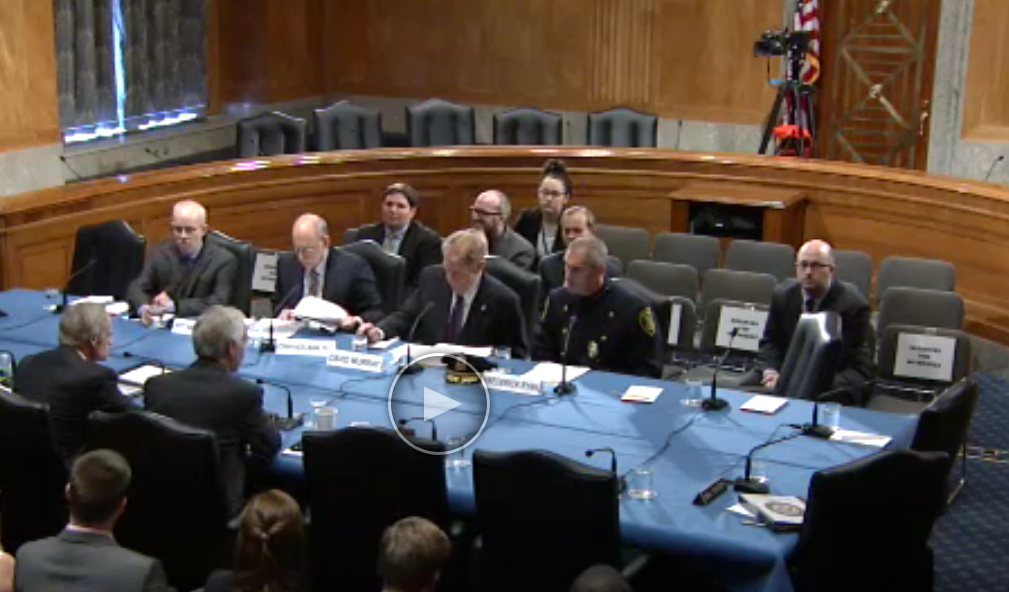
Heavy-hitters in the drug policy world were invited to a rare roundtable discussion hosted by the Senate Committee on Homeland Security and Governmental Affairs on Wednesday morning.
The goal of the discussion, entitled “America’s Insatiable Demand for Drugs: Examining Alternative Approaches,” was to forge ahead with new ideas to address, among other things, America’s opioid epidemic, particularly those outside the old tropes of punishment and criminalization. While many new ideas were laid out, such as supervised injection sites and heroin-assisted treatment, several old, and arguably flawed ideas, made their way into the discussion.
Coming out swinging was Dr. Ethan Nadelmann of the Drug Policy Alliance, who argued his vision for ending the War on Drugs, which, during his testimony he called a “monumental disaster.” Nadelmann says new policies must be based in science, public health, and human rights. So impassioned was he, that at one point panelist Frederick Ryan, Chief of Police in Arlington, Massachusetts, a member of the Police Assisted Addiction and Recovery Initiative (PAARI) board of directors, said “I wish I had the Wheaties he had this morning.”
A clear ally of Dr. Nadelmann’s on the roundtable was Dr. Scott MacDonald of the Providence Crosstown Clinic in Vancouver, Canada. Dr. MacDonald summarized his research into—and the scientific literature on—heroin-assisted treatment as well as offering hydromorphone to entrenched heroin users as an “intensified form of medication-assisted treatment.” Dr. MacDonald also made the case for utilizing supervised injection facilities (SIFs) to combat the opioid epidemic, citing the positive outcomes seen in areas of Vancouver and around the world where such facilities are currently in operation. It was remarkable that such ideas were being honestly discussed in front of the U.S. Senate.
Chief Frederick Ryan focused on the topic of stigma, and demonstrated how it literally kills. “Stigma and shame inhibit patients and their families from seeking treatment and support,” he said. Like Nadelmann, Ryan also called to end the drug war, saying, “Those with substance use disorders are not our enemies and this notion we’re at war with them must be abandoned.” He said waging a war on citizens is not the way to foster trust between police and communities.
Senator Ron Johnson (R-Wisc.), chairman of the Homeland Security and Governmental Affairs Committee, said toward the end of the discussion that, “Hopefully, we can agree on data, I mean, facts are facts and they’re kind of hard to come by.” Mostly everyone agreed on the data except for David Murray, who served in the Office of National Drug Control Policy during the George W. Bush administration. Throughout the discussion, Murray held his stance as the panel’s sole devil’s advocate.
During a tense volley between Nadelmann and Murray, Chief Ryan said, “I have my handcuffs with me gentleman.”
Murray also spent most of his testimony discussing the supply side of narco-capital. Nadelmann and many others argue that we’ve been attacking supply for a century and it has yet to reduce drug-related harms. With such diametric views, no agreements were reached.
But the object of the roundtable was not for discussants to agree, but rather for senators to hear from the experts about new approaches to tackle the issue of substance use in America. Because Chief Ryan, Nadelmann, and MacDonald attended, novel approaches were indeed heard. But whether or not those ideas will be transformed into policy remains to be seen.
